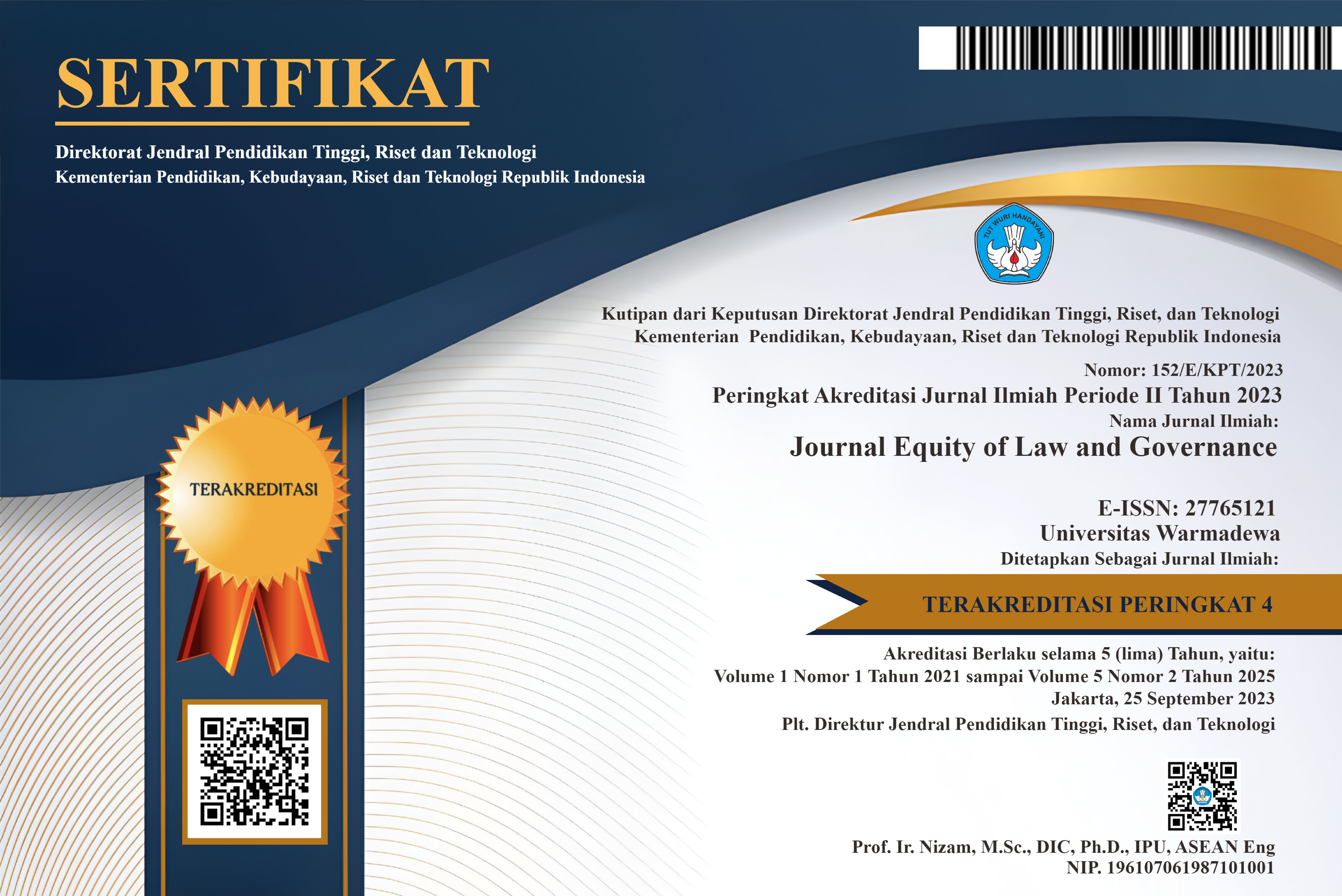Sanctions for Criminal Acts of Election Violations (analysis of decision number: 71/Pid.Sus/2019/PT PAL)
Abstract
General elections as a means of democracy in Indonesia still face various challenges, including election violations and crimes. Law No. 7 of 2017 concerning Elections regulates administrative violations, violations of the code of ethics, and election crimes. However, there is still ambiguity in the regulation and classification of election violations and crimes. The case study of the Palu High Court decision Number 71/Pid.Sus/2019/PT PAL shows an example of an election crime in the form of campaigning during the quiet period. The defendant, a candidate for DPRD member, was proven to have violated Article 523 paragraph (1) in conjunction with Article 280 paragraph (1) letter j of Law No. 7/2017 by distributing stickers and promising rice to voters during the quiet period. A similar decision was also found in a 2014 case at the Mamuju District Court. The aim of this research is to find out the legal basis for general election crimes, and also to find out the judge's considerations in decision number: 71/Pid.Sus/2019/PT PAL.These cases illustrate the challenges in enforcing election criminal law, especially regarding illegal campaigning during the quiet period. Clearer regulations and effective law enforcement are needed to ensure the integrity of the election process in Indonesia.
References
Abubakar. (2021). Introduction to Research Methodology (1 ed.). Yogyakarta: SUKA-Press UIN Sunan Kalijaga.
Amsari, F. (2022). Constitutional and Legal Framework for Organizing Elections and Simultaneous Elections in 2024. Padang. Andalas University: Center for Constitutional Studies (PUSaKO) Faculty of Law.
Annisa Rengganis, M. a. (2020). Political Party Wings in the Implementation of Village Democracy De Jure. Muhammadiyah Cirebon Journal 4, no. 1, 51–66.
Budiman, A. (2022). State Theory, State, Power and Ideology. Gramedia Pustaka Utama.
Hamzah, A. (2015). Certain Offenses (Speciale Delicten) in the Criminal Code. Sinar Graphics.
kartiko, G. (2009). electoral system from a democratic perspective in Indonesia. Constitutional Journal, II No.1, 1-171.
Khairul, F. (2015). Election Crime Handling System. Constitutional Journal, 12(2), 64–283. https://doi.org/https://doi.org/10.31078/jk1224.
Mahendra, Y. I. (1996). Dynamics of Indonesian State Administration, Compilation of Actual Problems with the Constitution of the Representative Council and the Party System. Jakarta: Gema Insani Press.
Muchtar. (2015). Normative Juridical Analysis of Synchronizing Regional Regulations with Human Rights. Humanus: Scientific Journal of the Humanities Sciences, 14(1).
Mulyadi, D. (2019). Analysis of the Application of Forms of Election Crime. Galuh Justis Scientific Journal, Vol.7 No.2.
Puspoyo, W. (2012). From Soekarno to Yudhoyono Indonesian Elections 1955-2009. Solo: Era Edicitra Intermedia.
Ramdansyah. (2009). he Dark Side of the 2009 Elections Portrait of the Accessories of Indonesian Democracy. Jakarta: Rumah Democracy.
 Abstract viewed = 17 times
Abstract viewed = 17 times
 pdf downloaded = 22 times
pdf downloaded = 22 times













